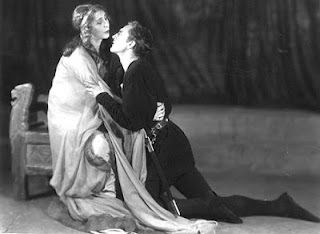PRESENTATION DATES
Two groups, both alike in ability, In fair E 202, where we lay our challenge...
Smithtown's final semester offering of Shakespeare is coming to a close. Since February we have explored multiple aspects of all things "Shakespeare." Historical, Investigative, Uses of Language, Hollywood's treatment, poetry, plays -- all in an attempt to gain a deeper appreciation for the work. Now it is time for you to take what you've gleaned, and use it for the powers of good (and not evil).
SCENARIO
Your class is about to attend a live performance of Shakespeare's ___Othello or Much Ado About Nothing ___. It is your job to give us an exciting, knowledgeable preview of the work.
TASK
There will be two (2) groups
Each group will be responsible for teaching the other about a work of Shakespeare
Over the course of Two (2) days you will provide to each other a dynamic presentation
Each amazing effort will contain, at the bare minimum, the following:
- At least one (1) scholarly work to help explain the play
- At least one (1) aspect of "live performance" from the group
- At least one (1) piece of multi-media
- At least one (1) class activity - which will engage the group and get them on their feet
PROCEDURE
Groups will:
- get the play (from the Library)
- meet and read the play together (and independently) in class and out of class
- brainstorm the most engaging way(s) to present the 'essential information' needed in order for a group of 'regular folks' to grasp and enjoy a new work of Shakespeare
- divide tasks
- set deadlines
- hold each other accountable
- resolve conflict
- have fun
- communicate clearly the needs, wishes and wants (within the group and with the instructor)
- have fun
- rehearse the presentation so it rocks













